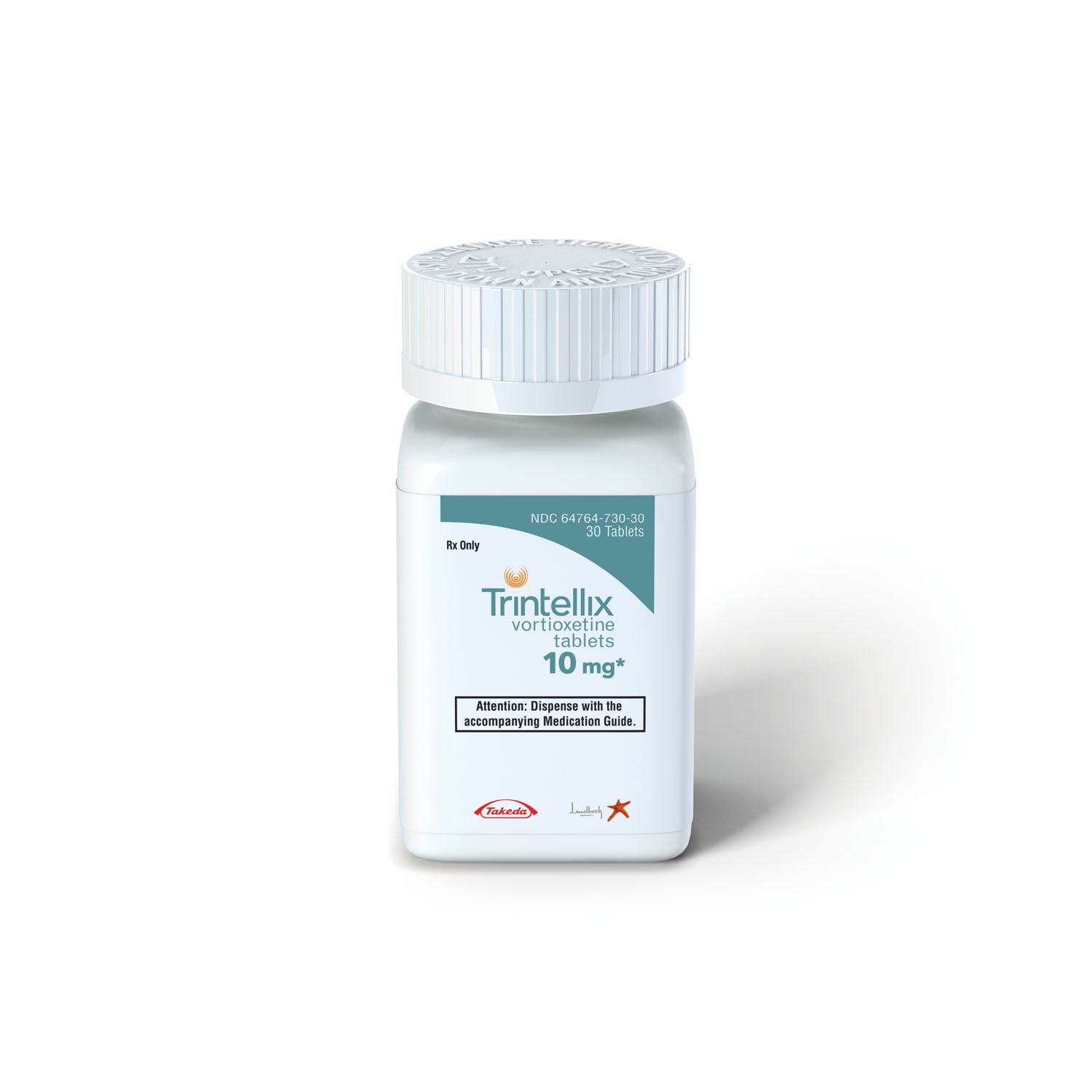Trintellix: An Overview of a Modern Antidepressant
Introduction to Trintellix
In recent years, the management and treatment of depression have been significantly enhanced by the advent of novel pharmacological agents. One such agent is Trintellix (vortioxetine), a multimodal antidepressant. Depression remains a pervasive mental health disorder, characterized by persistent sadness, loss of interest in activities, and various somatic complaints. It is a leading cause of disability globally, affecting millions of individuals and representing a substantial burden on healthcare systems here. Addressing this burden requires effective management strategies, which include both psychological and pharmacological interventions.
What is Trintellix?
Trintellix, generically known as vortioxetine, is an atypical antidepressant. It was approved by the U.S. Food and Drug Administration (FDA) for the treatment of major depressive disorder (MDD) in adults. It represents a shift from traditional antidepressants like Selective Serotonin Reuptake Inhibitors (SSRIs) by having a distinctive mechanism of action that combines classic serotonin reuptake inhibition with additional modulatory effects on various serotonin receptors. Trintellix is administered orally, typically in doses ranging from 5 mg to 20 mg once daily here.
Approved Uses for Trintellix
The primary indication for Trintellix is the treatment of major depressive disorder (MDD). This condition is hallmark for its chronicity, often requiring long-term treatment even after the improvement of acute mood symptoms. The efficacy of antidepressants, including Trintellix, in maintaining remission and preventing relapse in MDD particularly during the maintenance phase of treatment, has been established in numerous studies here.
The approval of Trintellix for this indication highlights its role as a crucial option for patients—especially those who have not achieved adequate response to other antidepressants. Its safety and efficacy have been rigorously evaluated through randomized controlled trials, demonstrating its favorable performance in both maintaining remission and improving overall treatment outcomes compared to placebo.
How Does Trintellix Work?
Mechanism of Action
Vortioxetine, as mentioned, is known for its multimodal activity. While most traditional antidepressants primarily function by inhibiting the reuptake of serotonin in the brain, vortioxetine exhibits a more complex interaction with the serotonin system. It acts not only as a serotonin reuptake inhibitor (SRI) but also targets several serotonin receptors:
- It acts as an agonist at the 5-HT1A receptors, which may enhance mood and anxiety defense mechanisms.
- It antagonizes the 5-HT3 and 5-HT7 receptors, potentially improving cognitive aspects like memory and learning often impaired during depression.
These multiple actions potentially allow Trintellix to have a broader therapeutic effect compared to agents with a single mechanism of action here.
Pharmacokinetics
The pharmacokinetic profile of Trintellix is linear and dose-proportional, with its effects generally reaching steady-state plasma concentrations within approximately two weeks of consistent daily dosing. It is metabolized primarily through hepatic pathways involving cytochrome P450 enzymes, and as such, dose adjustments are primarily required only in patients identified as poor metabolizers for specific enzymes here. Its metabolic profile ensures minimal interactions with other co-administered medications, barring a few specific agents.
Serotonin Syndrome Risk
A potential risk associated with serotonergic medications, including Trintellix, is serotonin syndrome—a potentially life-threatening condition resulting from excess serotonin activity. The syndrome is characterized by symptoms such as altered mental status, autonomic hyperactivity, and neuromuscular abnormalities here. Clinicians must remain vigilant for symptoms suggestive of serotonin syndrome, particularly when initiating or increasing doses of serotonergic agents, or when used concomitantly with other drugs that impact the serotonin system.
In the sections that follow, the article will delve into the side effects, clinical considerations, and other relevant factors related to the usage of Trintellix in everyday practice situations.
Trintellix Clinical Trials and Efficacy Studies
The clinical efficacy of Trintellix has been demonstrated in multiple randomized, placebo-controlled trials. Studies have consistently supported its utility in the acute treatment of major depressive disorder (MDD), as well as its role in the continued management phase to prevent relapse. Notably, Trintellix appears well-tolerated and effective across diverse patient populations, including those with treatment-resistant forms of depression. Large-scale trials have underscored its ability to significantly improve depression scores measured by standardized scales, indicating robust antidepressive effects here and here.
Vortioxetine also demonstrates particular benefits in improving cognitive dysfunctions associated with depression. Cognitive challenges such as impaired attention, memory, and executive functioning are prevalent in MDD and can persist even after mood symptoms have resolved here. Vortioxetine’s mechanism of action—targeting multiple receptor systems beyond serotonin reuptake inhibition—may contribute to its unique effects over cognitive symptoms compared to other antidepressants.
The Side Effects of Trintellix
Like many pharmacological therapies, Trintellix is associated with various side effects. However, it is generally considered to have a favorable tolerability profile. The most commonly reported adverse effects include nausea, headache, dizziness, and potential gastrointestinal disturbances here. Nausea tends to be transient, often diminishing in severity and frequency during continued treatment. It’s recommended that patients maintain communication with their healthcare provider to adjust dosing or to implement strategies to minimize these side effects.
There is also a documented, though rare, risk of serotonin syndrome, especially when Trintellix is taken with other serotonergic agents. Patients should be extensively counseled on recognizing the early signs of this syndrome, such as agitation, confusion, rapid heart rate, and muscle rigidity, and should seek immediate medical evaluation if symptoms appear here.
Awareness of these potential adverse effects allows clinicians to mitigate risks and tailor treatment to the needs of individual patients, thereby optimizing the therapeutic outcomes of Trintellix.
Comparative Analysis
Evaluating the comparative efficacy of Trintellix relative to other antidepressants reveals valuable insights. Systematic reviews and meta-analyses have positioned Trintellix alongside agents considered effective for MDD, including familiar SSRIs and SNRIs. Comparative studies often highlight its favorable profile concerning cognitive improvements, a critical dimension of depression treatment not uniformly addressed by other antidepressant classes here.
An essential aspect of treatment selection includes weighing efficacy against side-effect profiles. For instance, while agents like venlafaxine or amitriptyline might exhibit higher efficacy in some head-to-head comparisons, their tolerability (e.g., gastrointestinal side effects, weight gain) might render them less suitable for certain patients. In contrast, Trintellix often maintains a balance between efficacy and tolerability, making it a compelling choice for many clinical scenarios here.
Conclusion
The introduction and implementation of Trintellix as a therapeutic option for MDD provide valuable contributions to psychiatric pharmacotherapy. Its multimodal mechanism offers distinct benefits, especially for patients dealing with cognitive impairment secondary to depression. Ongoing research and accumulating clinical experience continue to elucidate the breadth of Trintellix’s utility in diverse patient populations.
As with any treatment strategy, clinical decisions should be guided by a comprehensive assessment of patient needs, potential therapy benefits, and possible adverse effects. Continued evaluation of emerging data and personalized treatment considerations remain essential to optimizing care for individuals with major depressive disorder. Through its innovation and demonstrated effectiveness, Trintellix remains a significant and welcome player in the landscape of modern antidepressant therapies.








